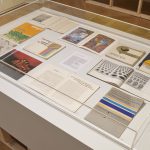The Mosaic Rooms is pleased to announce Constellations of Multiple Wishes. This group exhibition contemplates entangled recent histories, from the foundations of the Non-Aligned Movement. Co- curated with Bojana Piškur, the exhibition brings together archival materials, existing and newly commissioned works that connect peripheral geographies, agitating relationships between time and memory.
Derived from the principles of the 1955 Afro–Asian Conference in Bandung, the Non-Aligned Movement (NAM) was a political project that mobilised a desire for an alternative to the two dominant power blocks during the Cold War. Born in 1961 out of the liberation and independence movements across the globe, its ideology was rooted in anti-imperialism, anti-colonialism, anti-racism and anti-capitalism. It sought to initiate infrastructures of cultural equality and expansive networks of cooperation and solidarity.
Although significantly distinct, our shared present remains burdened by deep divisions and increasing global inequalities. Though NAM continues to exist now with 120 member states, it has lost its significance and resemblance to the 1960s movement and its intentions. Avoiding the allure of nostalgia, Constellations of Multiple Wishes is inspired by the notion of ‘potential history.’ A form of being and thinking with others both living and past across time, using it to reactivate ideas, and counter the politics and poetics of memory. The exhibition refuses the position of historian; it loops, repeats, rewinds and forwards, acting as a conduit for shared ideas.
Alongside archival materials, works in the exhibition include:
A newly commissioned film, A Letter (Side B), by Larry Achiampong looks at the affective impact of colonialism, immigration and separation on two brothers living in Britain and Ghana. The work forms part of a new project titled GH0ST_DATA_, a new series of films by the artist delving into the relationship between depression, black masculinity, and digital anxiety. The film explores how the past interrupts and impacts in the present and incorporates recent footage filmed by Achiampong in Ghana as well as archival footage from The Museum of African Art: The Veda and Dr Zdravko Pecar Collection in Belgrade, Serbia. Speaking from a deeply personal perspective, the film also points to the wider social and institutional experiences.
Nika Autor’s new commission looks at the construction of Šamac-Sarajevo railway in 1947 by thousands of youth brigadiers from around the world. Bringing to the fore differing temporal, social, and political realities, the film contrasts the construction of the railways with the continuing displacement of refugees moving across the Balkan route. The film ends with portraits of Palestinian women who have travelled the route, as it reflects on the impossible futures that were imagined.
Alia Farid’s Mezquitas de Puerto Rico (Hatillo) traces lesser-known histories of Arab and South Asian migration to South America and the Caribbean. In an ongoing series of handwoven prayer rugs Farid documents the Mosques found in Latin America and the Caribbean. Photographs of these architectural sites are then interpreted into rug motifs by traditional weavers in Iran. Part of a growing and evolving patchwork, the rug points to entangled colonial histories, and collective experiences of resistance and displacement.
KURS present a new commission of hybrid text-based work derived from the research on speeches delivered by delegations during the conferences of the Non-Aligned Movement. Synthesising non- aligned principles and reappropriating this material into contemporary struggles, the collective present textile banners and printed materials that bridge the political, revolutionary, and poetic.
Basim Magdy’s experimental short film A 240 Second Analysis of Failure and Hopefulness (with Coke, Vinegar and other Tear Gas Remedies) interrogates the destruction that takes place on sites of construction. The artist uses substances that chemically alter the film, both technically deteriorating the film stock and creating something new. Magdy’s interest in perpetuating cycles of uncertainty and expectation is also seen in the commemorative plaque installed outside, A Sign for Remembrance. It acts as a signifier of something lost and an invitation for creation.
Love Poem for City Dreamers is a public artwork commission featuring a poem written by Basim Magdy on the burden of passing time and the melancholy of ideas and experiences unrealised. The billboard, co-designed with Marwan Kaabour can be seen at Burdett Road/Midlothian Road in East London for two weeks (20/02/2023 —5 /03/2023).
Alongside contemporary works and archival materials, a small selection of works from The Art Collection of Non-aligned Countries Laboratory (part of the Centre for Contemporary Art of Montenegro Fund) will be shown in London for the first time. The collection holds around 800 artworks from 56 non-aligned countries. Shown here are works by Inji Efflatoun, Kareem Dabbah, Choukri Mesli and Khadeir Al Shakarji selected by curators who have been active carers and guardians of the collection for over 30 years.
As The Mosaic Rooms celebrates its 15th year, this exhibition opens a yearlong programme that interrogates active solidarity, support structures and alternative models of self-organisation and collaboration.
Press release from The Mosaic Rooms



